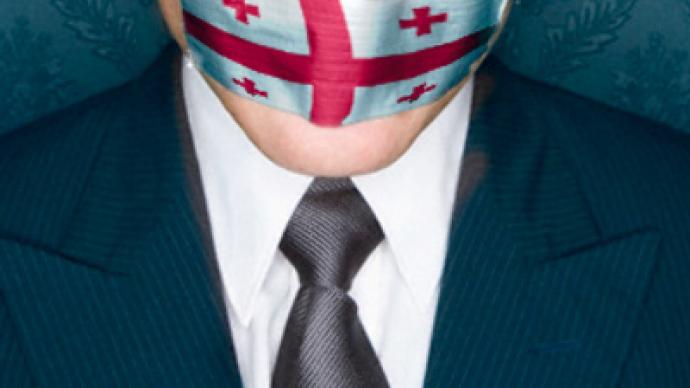“It’s hard for normal journalists to work in today’s Georgia”

Gudadze’s story is not an isolated case, according to deputy editor-in-chief of Independent Military Review Viktor Litovkin. Normal journalists find it hard to work in today’s Georgia, Litovkin told RT in an interview.
RT: How would you characterize Georgian media?
VL: In my opinion the Georgian information space is very specific. The country’s authorities keep saying that their country is very democratic, and that there is the freedom of speech there, but in reality, freedom of speech is only for certain media and TV channels – the ones who support the ruling regime. And those from the opposition, those who do resist the regime – they are turned into enemies of the people. There are attempts to oust them from the country or to suppress them.
Among the examples there is the journalist who crossed the border to South Ossetia with his family asking for political asylum in Russia.
There is also another case with Besik Pipiya journalist from Ria Novosti who is working in Tbilisi. They found a fault with his driving license, and they initiated a criminal case because of that. It’s clear that the reason is ridiculous.
That’s the situation for today in Georgia. Normal journalists find it hard to put up with this. They know that there are analytical and problematic materials and those which give a simple description of the situation in the country. They do not have to give a positive or negative assessment – they must describe the real situation and be objective.
RT: What do you think a man who leaves his native country hopes for?
VL: I think he hopes to find a job in Russia. He is good at Russian, and he’s a professional journalist – his talent will be in demand. Of course, it won’t be easy for him. His mother, wife and child are dependent on him for support. Nobody is waiting for him with open arms. But if a person has made up his mind to do such a deed, if a person has made up his mind to leave his motherland – that means that he has been worn out, and he can no longer stay in that place. He’s concerned not only about his own life, but also the lives of his relatives. And that’s the main thing that helps him to overcome the difficulties and worries about settling down in a new place and adapting to it and to working in Russia.
RT: In your opinion, are there likely to be changes in Georgia in the near or distant future?
VL: I think it’s possible to count on that, because there is going to be a presidential election which may bring in a new team. But I would not think that the public opinion may change a lot towards the objective assessment of the events of the past 19-20 years on the territory of the country. Unfortunately, there is psychological pressure on people. And a sort of a psychological disease has developed over the time which makes Georgian politicians and elite see Russia as the cause of all the troubles of their country. But wise people have advised that the reason should be searched for in the politicians themselves.












